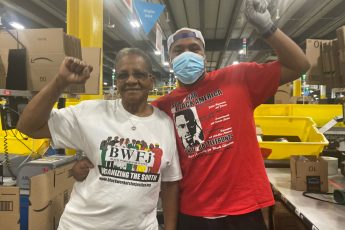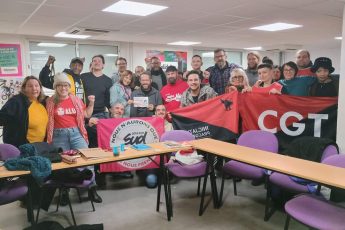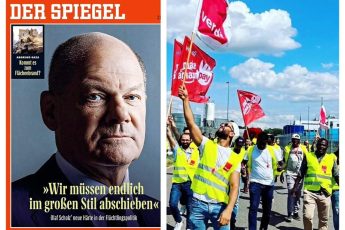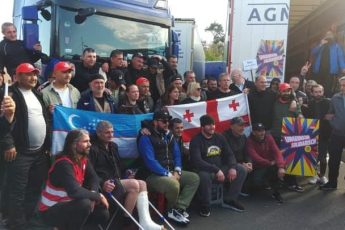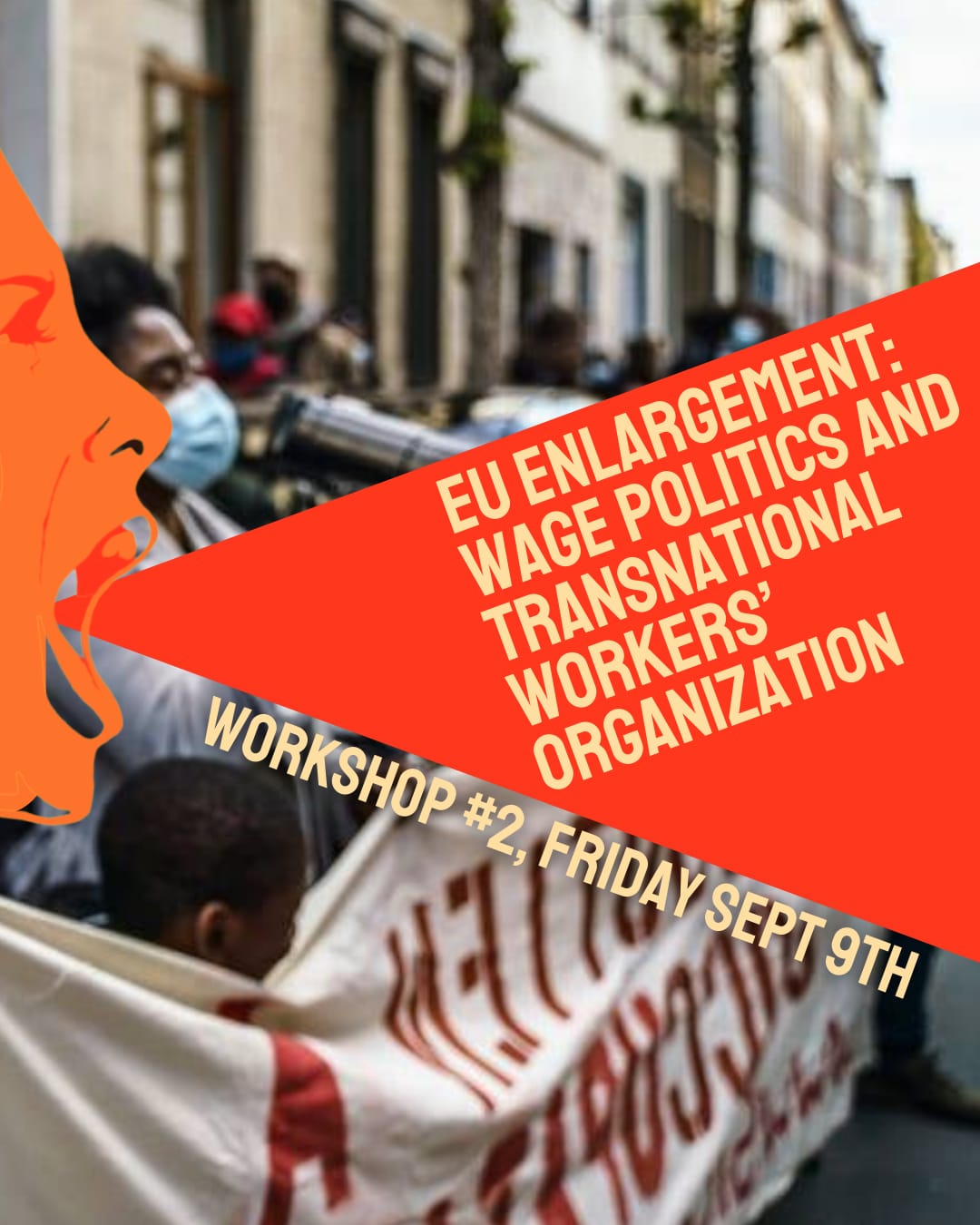
On September 9th, during the Transnational Meeting organized in Sofia by the TSS Platform and LevFem, around 50 activists took part to the workshop on “EU Enlargement: Wage Politics and Transnational Workers’ Organization”. The workshop had the goal of discussing how to organize collectively in the context of the EU enlargement process, of the EU labor regulations and wage policies, such as the recent directive on minimum wage. The discussion showed the heterogeneity of conditions in which we need to struggle, the differences and hierarchies in labor regulations and the different experiences concerning the effects of a legal minimum wage.
We had contributions from countries that are still waiting to enter the EU, like Serbia, where the minimum wage is around 300 euros per month, but it should be at least 1000 euros to allow workers to survive, and Georgia, where the minimum wage is around 6 euros per month, far lower than what most people are making every month. Both countries are thus kept in a sort of “kindergarten of the EU”, which is instrumental to reproduce hierarchies and exploitation. In Georgia, in particular, access to the EU is seen as a possibility for having better conditions, but every attempt to harmonize laws to EU regulations has resulted in increasing precarity and labor poverty, particularly for women, who therefore choose to migrate towards Western Europe to work as care-workers. Then, we had contributions from countries who left the EU, like the UK, where again the minimum wage already exists but is not nearly enough to make a living and where Brexit had a huge impact on working and living conditions, for migrants in particular. Currently, in the UK, the cost-of-living crisis is destroying real wages at an increasing pace, but workers are already clearly refusing to pay for the costs of this war scenario. We also had contributions from countries which have been in the EU since its very founding, like Italy, where wages have never increased in the last thirty years and where collective bargaining has in many cases represented an obstacle to higher wages, due to an increasingly fragmented and precarized labor market. There, as well as in many Eastern European countries like Bulgaria or Poland, the implementation of the EU directive on minimum wage would have a significant impact in allowing millions of workers to escape poverty.
The workshop thus proved that, to build a transnational organization and communication to fight around wages, we need to face the wide variety of conditions and of organizational difficulties that characterize the European space. As a matter of fact, several contributions highlighted how in this world-war scenario, characterized by rising inflation and skyrocketing energy costs, the possibility of survival itself is at stake and will be at stake in the next months. For this reason, the problem of wages is strictly tied and cannot be separated from the question and the possibility of social reproduction. At the same time, during the discussion we also agreed that whatever we think of a legal minimum wage and whatever impact the EU directive might have in every single country, it cannot be enough. Despite today the bare minimum seems to be the only thing that we can aim for, all of the contributions made it clear that we want much more than the minimum. In a context where they want us to systematically lower what we can expect and demand, we think it is necessary to raise expectations and to fight over wages in the next months, which will mean at the same time fighting for social reproduction and fighting for the condition of migrants and women. For this very reason we agreed that the discussion that we started during the workshop will need to be continued over the next weeks and months. This discussion will need to address the main challenge that we have in front of us: that of understanding how to struggle together from different places within and beyond the EU, acknowledging the differences between our conditions but refusing to be divided by them. Facing this challenge means turning our differences into a starting point for gaining more power and for obtaining much more than a mere survival.
Read here the TSS declaration from the Sofia meeting: https://www.transnational-strike.info/2022/10/11/tss-declaration-from-the-sofia-meeting/


